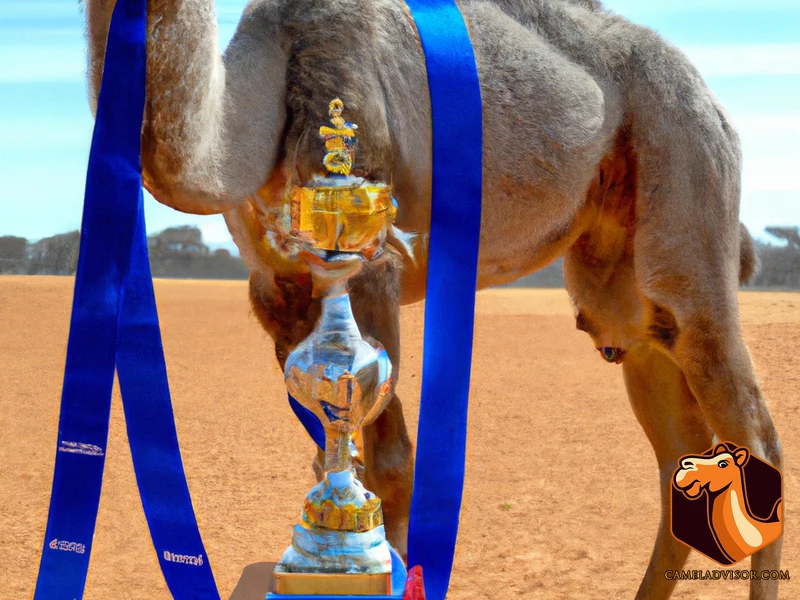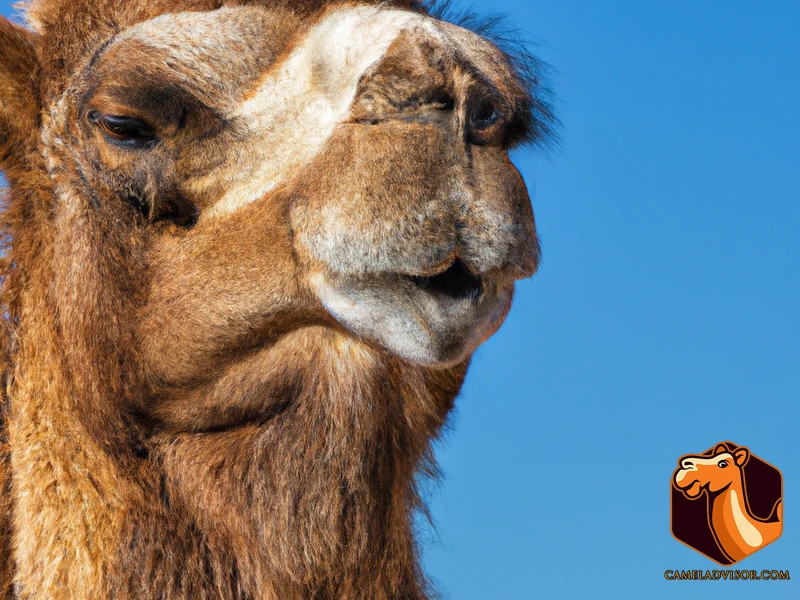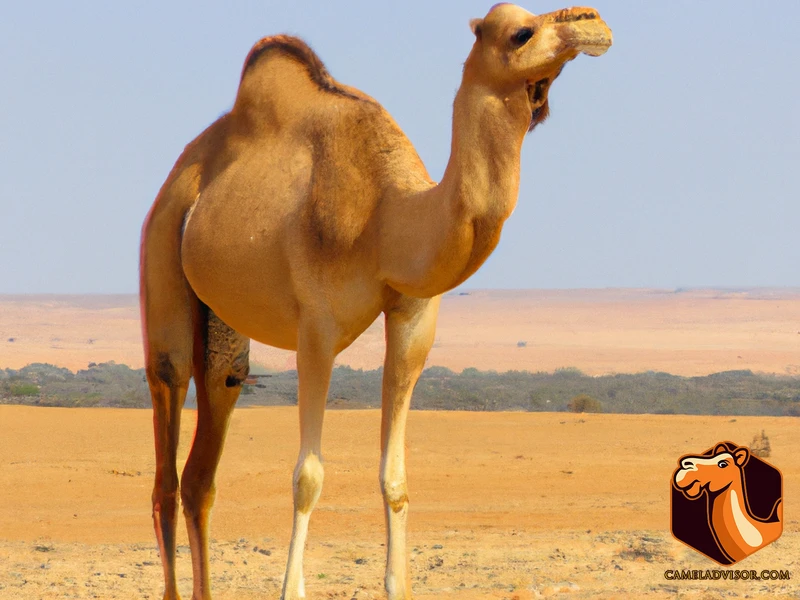As we marvel at the beauty and grace of show camels, it’s easy to forget that these magnificent creatures have complex physical and emotional needs that must be met to maintain their health and wellbeing. From their diet and exercise routines to their social interactions and stress levels, each aspect of their care plays a crucial role in ensuring that they thrive. In this article, we will explore the various physical and emotional needs of show camels, common health concerns they may face, and strategies for preventive care and emergency preparedness. Understanding these key factors is essential for all those who work with and care for these amazing animals.
Contents
- Physical Needs of Show Camels
- Emotional Needs of Show Camels
- Common Health Concerns for Show Camels
- Preventative Care for Show Camels
- Conclusion
-
Frequently Asked Questions
- What is the average lifespan of a show camel?
- Do show camels require a specific type of diet?
- Can show camels be housed with other animals?
- What is the ideal temperature range for show camels?
- How often should show camels be groomed?
- Can show camels perform in extreme heat?
- What vaccinations are necessary for show camels?
- What kind of dental issues are common in show camels?
- Do show camels require a lot of exercise?
- What should be included in a show camel’s emergency kit?
- References
Physical Needs of Show Camels

As caretakers of show camels, it is crucial to understand and fulfill their physical needs. Adequate nutrition, appropriate exercise, and proper shelter and climate control are all essential for their health and overall performance on the show circuit. In this section, we will delve into each of these areas and discuss best practices for meeting physical requirements. Additionally, we will cover common health concerns in show camels, as well as preventative care measures to keep them healthy and thriving. It is important to note that physical needs are just one aspect of caring for show camels; emotional needs are equally important and will be discussed in the following section. To learn more about preparing show camels for competition, check out our article on preparing camels for show season.
Diet and Nutrition
Proper diet and nutrition are essential for the overall health and performance of show camels. A balanced diet should provide all the necessary nutrients, vitamins, and minerals to keep these animals healthy and active.
Hay and Grass: Fresh hay and grass are the main sources of food for camels. They should have access to clean and fresh hay/grass throughout the day. Camel hay should be low in protein and high in fiber.
Grains: Show camels may also benefit from grains such as oats or barley for extra energy. However, grains should be introduced gradually to prevent digestive issues or weight gain.
Water: Camels can drink up to 50 gallons of water a day, and clean water should always be available. Their water should be changed frequently to prevent the growth of harmful bacteria in their water tanks.
Supplements: Sometimes, show camels may require additional supplements to balance their diet. Talk to a veterinarian experienced in treating camels for recommendations or advice.
It’s essential to monitor the amount of food given to them to prevent overeating or underfeeding. Overeating may cause obesity, while underfeeding may lead to malnutrition, weakness, and susceptibility to diseases.
Building trust and strong bonds with show camels is crucial for managing their diet, as they will feel more comfortable with human handlers during feeding and training periods. Show camel handlers should ensure that their camels receive a balanced diet each day to maintain their health and well-being, which is necessary for peak performance in shows.
| Nutrient | Amount Needed | Source(s) of Nutrient |
|---|---|---|
| Protein | 12-15% of daily diet | Hay/grass, grains, supplements |
| Fiber | 15-20% of daily diet | Hay/grass, grains |
| Carbohydrates | 30-35% of daily diet | Grains, hay/grass |
| Fats | 5-8% of daily diet | Grains |
| Vitamins and Minerals | Varies depending on the nutrient | Hay/grass, grains, supplements |
In addition to feeding their camels properly, show camel handlers must provide clean and safe feeding areas in accordance with training and showing needs. Food should be stored in a clean, dry, and well-ventilated area to avoid contamination or infestations by pests.
Exercise and Activity
Camels are known for being active animals that can travel long distances, but show camels may not have the same opportunities for exercise as their wild counterparts. As such, it is important for show camels to have regular physical activity and exercise to maintain their health and wellbeing.
1. Provide ample space: Show camels should have enough space to move around comfortably. Keeping them in confined spaces can lead to physical and mental health problems. It is recommended to provide them with at least 200 square feet of space per camel.
2. Regular walks: Regular walks can be a great source of exercise for show camels. These walks can also be used as opportunities for bonding and training. It is recommended to walk them for around 30 minutes per day.
3. Obstacle courses: Obstacle courses can be a fun way to provide camels with exercise and challenge them mentally. These activities can also be used as bonding opportunities with handlers. However, these activities should only be introduced after proper training and acclimation.
4. Grazing: Grazing can be a form of exercise for camels as it involves movement and muscle usage. It also provides an opportunity for social interaction with other camels. However, if grazing areas are limited or of poor quality, supplemental feed must be provided.
5. Regular rest: Show camels also need proper rest to allow their bodies to recover. They need to have access to comfortable shelters where they can rest and relax.
In conclusion, regular exercise and physical activity are essential components of caring for show camels. Providing enough space, regular walks, obstacle courses, grazing, and rest are key to maintaining their physical health and psychological well-being. Handlers should ensure they are aware of their camels’ physical limits and make necessary modifications to their exercise regimens. Following these guidelines can help show camels live long, healthy lives. For more tips on training show camels, check out our top 5 tips for training show camels.
Shelter and Climate Control
Providing adequate shelter is essential to ensure the well-being of show camels. Their shelter should provide protection from extreme weather conditions, including high temperatures, strong winds, and heavy rain. Proper climate control is also necessary for their comfortable living. To ensure the right shelter and climate control, there are several factors to consider, which are discussed below.
| Factor | Description |
| Space | Camels require enough space to lie down, stand up, and move about freely. A show camel’s shelter should provide enough space to accommodate all their physical activities. |
| Lighting | Proper lighting in their shelter promotes their natural sleep-wake cycle. Inadequate lighting can cause disruptions to their routine and emotional health. |
| Ventilation | Good ventilation is crucial to maintaining a healthy living environment for show camels. Proper airflow helps reduce the risk of respiratory problems and moisture-related health issues. |
| Temperatures | Camels are well-adapted to tolerate hot temperatures; however, sudden changes in temperature can lead to health complications. Keeping their shelter at a consistent temperature is essential for their well-being. |
| Humidity | High humidity levels can increase the buildup of bacteria and respiratory infections. Low humidity, on the other hand, can cause dry skin and respiratory problems. Controlling the humidity in their shelter is important to maintain good health. |
| Cleanliness | Regular cleaning of their shelter is necessary to remove waste, dirt, and debris that can negatively affect their health. Cleanliness is also critical in preventing the occurrence of diseases commonly found in livestock. |
By considering these factors, show camel owners can ensure they provide a suitable living environment that meets their physical and emotional needs.
Emotional Needs of Show Camels
When it comes to taking care of show camels, it’s not just about their physical needs – it’s important to also consider their emotional needs. These majestic creatures are intelligent and social animals, and they require social interaction, training, and stress management in order to thrive. As caretakers, it is our responsibility to ensure that we are meeting their emotional needs as well as their physical needs. Let’s dive deeper into how we can best support the emotional well-being of show camels.
Camels are social animals that thrive on strong bonds with their herd. Providing opportunities for social interaction is vital for their emotional well-being. Here are some ways to fulfill their social needs:
- Group living: Camels should be kept in groups of at least two or three to prevent isolation and loneliness. It is important to ensure they get along well and are of similar age and size to avoid potential bullying and aggression.
- Environmental enrichment: Providing diverse and stimulating surroundings can help prevent boredom and aggression. Objects, such as balls or climbing structures can offer mental and physical stimulation.
- Activity and Exercise: Regular activity and exercise can help build trust and reduce stress. Daily walks, runs, and other forms of physical activity can also help support physical health.
- Training and Education: Training sessions can help reinforce trusted human-camel relationships while also enhancing their mental stimulation. Training sessions can also help ensure safety measures are observed.
- Communication: Communication is key in ensuring the social health of show camels. Learning to recognize signs of discomfort, aggression, or distress can help ensure their needs are met.
By providing these various social opportunities, and monitoring their interactions, we can help ensure the contentment and safety of our show camels.
Training and Bonding
Training and bonding are vital for the emotional well-being of show camels. Camels are intelligent animals and are capable of forming strong bonds with their handlers. Consistent and positive reinforcement is key to building a strong bond between the handler and the camel.
During the training process, it’s important to establish clear communication and trust with the camel. This involves utilizing positive reinforcement techniques such as verbal praise, treats, and gentle strokes to encourage desired behaviors. It’s also essential to use these techniques to discourage unwanted behaviors.
Patience and consistency are important when working with camels. Camels may take longer to learn desired behaviors, but with time and consistency, they can be successfully trained. Handlers should also consider understanding camel behavior and herd dynamics, which can help them better communicate and establish a bond with the animal.
It’s also important to consider the comfort and safety of the camel during the training process. Handlers should ensure that they are using appropriate equipment, such as halters and lead ropes, and that the training area is safe and free from hazards.
Additionally, handlers should be aware of their body language and tone of voice, as this can affect how a camel responds to them. A calm and confident handler is more likely to establish a positive bond with the animal.
Finally, regular training and handling sessions can help maintain the bond between the handler and the camel. Handlers should also consider incorporating enrichment activities, such as puzzle feeders or socialization with other camels, to keep the animal stimulated and engaged.
Building a strong bond with a show camel through positive reinforcement and clear communication can help promote the animal’s emotional well-being and improve its performance in the show ring.
| Training and Bonding Tips for Show Camels |
|---|
| Utilize positive reinforcement techniques such as verbal praise, treats, and gentle strokes |
| Establish clear communication and trust with the camel |
| Be patient and consistent when working with the animal |
| Understand camel behavior and herd dynamics |
| Ensure the camel’s comfort and safety during training sessions |
| Be aware of body language and tone of voice when handling the animal |
| Incorporate enrichment activities to keep the animal stimulated and engaged |
Stress Management
Show camels, just like other animals, can experience stress when they are exposed to certain situations. Stress can negatively affect the physical and emotional health of camels, which is why it is important to manage their stress levels carefully. Here are some stress management techniques for show camels:
- Environmental control: Camels are sensitive to changes in their environment, so it’s important to keep their living conditions consistent. This can be achieved by minimizing loud noises, providing enough shade and ventilation, and avoiding sudden changes in temperature.
- Socialization: Camels are social animals that need interaction with their herd. Keeping camel groups together can help reduce stress, but it’s also important to pay attention to the dynamics within the group to avoid bullying or aggression.
- Proper handling: Camels can experience stress if they are handled roughly or forced to do something against their will. Handlers should use positive reinforcement techniques when training camels, avoiding harsh punishments or forceful actions. Regular gentle handling and bonding can help reduce stress in camels.
- Enrichment activities: Providing camels with activities that stimulate their natural behaviors can help reduce boredom and stress. Giving them access to toys, interaction with humans or other animals, or providing variety in their diet can improve their mental state.
- Calming medications: In some cases, calming medications may be necessary to reduce the stress levels of show camels. However, such medication should only be used under the guidance of a veterinarian who is familiar with camel health and behavior.
By implementing these stress management techniques, show camel handlers can help ensure the physical and emotional health of their animals, and help them perform at their best during show competitions.
Common Health Concerns for Show Camels

When it comes to show camels, it’s important to understand the potential health issues that can arise. Despite receiving top-notch care, these majestic animals are still susceptible to certain conditions. It’s crucial for camel caretakers to remain vigilant in monitoring their animals and addressing any health concerns promptly. By being aware of the common health concerns for show camels and taking preventative measures, caretakers can ensure their camel herd remains healthy and thriving. Let’s take a closer look at some of the health issues that can affect show camels.
Musculoskeletal Issues
One of the most common health concerns for show camels is musculoskeletal issues, which can include joint problems, muscle strains, and bone fractures. These can be caused by a variety of factors, including injuries, overexertion, and improper training techniques.
To prevent musculoskeletal issues in show camels, it’s important to provide them with proper nutrition and exercise, including regular stretching and conditioning exercises. Camels should be given adequate rest and recovery time between performances to allow their muscles and joints to heal and regenerate.
If a show camel does experience a musculoskeletal injury or condition, it’s important to seek veterinary care as soon as possible. Treatment may include rest, physical therapy, and medication to manage pain and inflammation.
To better understand how to prevent musculoskeletal issues in show camels, it’s important to be aware of the various risk factors and causes. These can include:
| Risk Factors | Causes |
|---|---|
| Poor nutrition | Inadequate diet or malnourishment |
| Overexertion | Excessive exercise, work, or performance |
| Improper training techniques | Using improper or dangerous training methods |
| Age and breed | Older camels and certain breeds may be more susceptible |
| Environmental factors | Extreme temperatures, rough terrain, and other stressful conditions |
By being aware of these factors and taking steps to prevent and manage musculoskeletal issues, show camel owners and caregivers can help ensure the health and well-being of these amazing animals.
Respiratory Problems
Respiratory problems are a common health concern for show camels, and can occur for a variety of reasons. Some issues are more common in certain climates, such as dry air, dust, or allergens. Others can arise due to infections, injuries, or chronic conditions.
Symptoms
The signs of respiratory problems in show camels can vary depending on the specific issue, but some common symptoms include:
- Coughing
- Sneezing
- Nasal discharge
- Labored breathing
- Decreased appetite
- Fever
Causes
Some of the most common causes of respiratory issues in show camels include:
- Bacterial or viral infections, such as pneumonia or influenza
- Fungal infections, such as aspergillosis
- Dust or particulate matter in the air
- Allergies to pollen, dust, or other environmental factors
- Injuries to the respiratory system
- Chronic conditions, such as heaves or asthma
Treatment and Prevention
Treatment for respiratory problems in show camels will depend on the specific issue and severity of the symptoms. In some cases, antibiotics or antifungal medication may be necessary to treat an infection. Supportive care, such as oxygen therapy or intravenous fluids, may also be beneficial.
Preventing respiratory issues in show camels can be done by managing the environment, ensuring proper ventilation and air quality, and minimizing exposure to allergens and other irritants. Regular veterinary check-ups can also help identify early signs of respiratory problems and allow for prompt treatment.
Proper management and care of show camels can help prevent and manage respiratory issues, and ensure the health and well-being of these magnificent animals.
Dental Health
Proper dental care is essential for the overall health and well-being of show camels. Neglecting dental health can result in significant health issues, including weight loss and poor appetite. In this section, we will discuss the best practices for maintaining the dental health of show camels.
Dental Anatomy of Show Camels
Camels have a unique dental anatomy that differs from other domestic animals. They have a set of 34 permanent teeth, which includes 6 incisors and 28 molars. The upper jaw has a dental pad that replaces the upper teeth, while the lower jaw has sharp incisors and molars to rip and grind food.
Dental Issues in Show Camels
It is important to be aware of the dental issues that can affect show camels. Some of the common dental problems seen in show camels include:
| Dental Issue | Symptoms | Treatment |
|---|---|---|
| Malocclusion | Difficulty chewing, weight loss, and changes in behavior | Tooth filing or extraction |
| Periodontal Disease | Swollen gums, bad breath, and tooth loss | Professional dental cleaning and medication |
| Molar Infundibular Cavities | Pain while chewing, difficulty eating, and weight loss | Professional treatment and filling the cavities |
Dental Care for Show Camels
Regular dental care is essential for show camels to prevent dental issues. Here are some best practices for maintaining the dental health of show camels:
1. Regular Dental Checks: Show camels should undergo dental checks at least twice a year.
2. Balanced Diet: A balanced diet is essential for the dental health of show camels. They should have access to clean, fresh water and a diet that is low in sugar and high in fiber.
3. Dental Procedures: If any dental issues are identified, appropriate procedures such as tooth filing, extraction, or filling should be done by a qualified veterinarian.
By following the above practices, show camel owners can keep their camels’ teeth healthy, which will benefit their overall health and well-being.
Preventative Care for Show Camels
As with any animal, prevention is key when it comes to maintaining the health and well-being of show camels. From vaccinations to regular check-ups, taking a proactive approach to their care can help prevent common health issues and ensure they are always in top condition. In this section, we will explore the various preventative measures that can be taken to keep show camels healthy and thriving.
Vaccinations and Parasite Control
Vaccinations and parasite control are crucial components of preventative care for show camels. Vaccinations protect them from various diseases, while parasite control helps prevent infestations by external and internal parasites.
Vaccinations: Camels require vaccinations against certain diseases, such as clostridial diseases, tetanus, rabies, and bovine viral diarrhea virus. Clostridial diseases, which can be fatal, are caused by bacteria that are present in soil and can enter the body through open wounds or ingestion. Tetanus, also caused by bacteria, affects the muscles and nervous system, leading to stiffness and muscle spasms. Rabies is a viral disease that affects the central nervous system and can be transmitted through bites from infected animals. Bovine viral diarrhea virus (BVDV) is a highly contagious viral disease that can cause respiratory and digestive problems.
To ensure proper vaccination, it is important to consult with a veterinarian and follow their recommended vaccination schedule. The vaccination schedule can vary based on the specific region and the current disease risks.
Parasite control: Camels can be infested with various external and internal parasites, such as ticks, mites, flies, and roundworms. External parasites can cause skin irritation, hair loss, and anemia, while internal parasites can cause weight loss, diarrhea, and other health issues.
Effective parasite control measures include regular grooming, insecticides and acaricides (chemicals to kill external parasites), and de-worming treatments. It is important to work with a veterinarian to determine the proper parasite control program for the specific needs of the camel herd.
Here is a table summarizing common vaccinations and parasite control measures for show camels:
| Vaccinations | Parasite Control |
|---|---|
| Clostridial diseases | Regular grooming |
| Tetanus | Insecticides and acaricides |
| Rabies | De-worming treatments |
| Bovine viral diarrhea virus |
Physical Exams and Monitoring
Regular physical exams and monitoring are critical components of preventative care for show camels. A thorough physical exam can identify any health issues early on, allowing for prompt treatment and potentially preventing more serious complications down the line.
During a physical exam, a veterinarian will typically check the camel’s vital signs, including their heart rate, respiratory rate, and temperature. They will also examine the camel’s eyes, ears, nose, and mouth for any signs of infection or disease. The veterinarian may also palpate the camel’s abdomen and check their musculoskeletal system for any abnormalities or signs of injury.
In addition to regular exams, it’s important to monitor show camels closely for any changes in behavior or physical appearance. Camels are stoic animals, meaning that they may not show signs of illness or pain until a condition has progressed significantly. It’s crucial for handlers to know their camels well and be able to recognize any signs of discomfort or distress.
Handlers should also keep detailed records of their camel’s health, including any medications or treatments that have been administered, as well as any changes in behavior or appetite. By consistently monitoring their camel’s health, handlers can quickly identify any issues that arise and take appropriate action to address them.
Summary: Regular physical exams and close monitoring are essential for maintaining the health and well-being of show camels. By staying vigilant and keeping detailed records, handlers can quickly identify and address any health issues before they become more serious problems.
Emergency Preparedness
In order to provide the best possible care for show camels, it is important to have an emergency plan in place. Here are some important steps to take for emergency preparedness:
- Identify potential emergencies: Take the time to identify potential emergencies that could occur in your area. For example, if there are wildfires in your region, make sure to have a plan for evacuation in case of a fire.
- Create a response team: Designate a team of individuals who will be responsible for executing the emergency plan. This team should have specific roles and responsibilities listed.
- Train the response team: Once you have created a response team, ensure that these individuals receive adequate training to carry out their responsibilities effectively.
- Prepare a first aid kit: Make sure to have a well-stocked first aid kit on hand at all times that includes necessary items such as antiseptics, bandages, medications, etc.
- Have an evacuation plan: If necessary, create an evacuation plan that specifies what steps will be taken to remove the camels from the immediate danger.
- Prepare for extreme weather conditions: In case of extreme weather conditions such as hurricanes or snowstorms, it is important to have a plan for the safety and care of the camels.
- Have emergency contacts: Keep a list of emergency contacts readily available including veterinarian contact details and local animal control authorities.
- Regularly review and update the emergency plan: Regularly review and update the emergency plan as needed to ensure its effectiveness in the case of an emergency.
By taking these steps, you can ensure that your show camels receive the best care possible in the event of an emergency.
Conclusion
In conclusion, caring for show camels requires attention to both their physical and emotional needs. Providing a balanced diet and proper nutrition is essential to their overall health and well-being. Regular exercise and activity, as well as access to shelter and climate control, also play important roles in their physical care.
However, it is equally important to consider the emotional needs of show camels. These highly social animals require opportunities for interaction with both humans and other camels, as well as training and bonding experiences. Stress management techniques, such as providing environmental enrichment and minimizing exposure to stressful situations, can also help promote their emotional wellness.
It is essential to be aware of common health concerns for show camels, such as musculoskeletal issues, respiratory problems, and dental health. Preventative care, including vaccinations and parasite control, as well as regular physical exams and monitoring, are important for identifying and addressing health issues before they become serious.
Finally, an emergency preparedness plan should be in place for any unexpected situations that may arise. By prioritizing both the physical and emotional needs of show camels and implementing preventative care measures, these impressive animals can thrive as they tour and perform in shows around the world.
Frequently Asked Questions
What is the average lifespan of a show camel?
Show camels typically live to be around 20-25 years old in captivity.
Do show camels require a specific type of diet?
Yes, show camels have a specific dietary requirement that consists of high fiber, low protein grasses, and hay, along with a limited amount of grains and supplements.
Can show camels be housed with other animals?
It is recommended to keep show camels with other camels to promote social behavior and reduce stress.
What is the ideal temperature range for show camels?
Show camels can tolerate a wide range of temperatures, but their ideal range is between 23-32°C (74-90°F).
How often should show camels be groomed?
Show camels should be groomed daily to maintain their coat and skin health.
Can show camels perform in extreme heat?
Show camels are adapted to performing in hot and dry conditions, but it is important to monitor their behavior and hydration levels to prevent heat exhaustion.
What vaccinations are necessary for show camels?
Show camels should receive regular vaccinations for diseases such as rabies and tetanus, as well as annual testing for tuberculosis.
What kind of dental issues are common in show camels?
Show camels are prone to dental problems such as overgrown teeth and periodontal disease, which can affect their eating habits and health.
Do show camels require a lot of exercise?
Show camels require daily exercise and activity to maintain their muscle mass and overall health.
What should be included in a show camel’s emergency kit?
A show camel’s emergency kit should include items such as wound care supplies, electrolyte supplements, and veterinary contact information.







